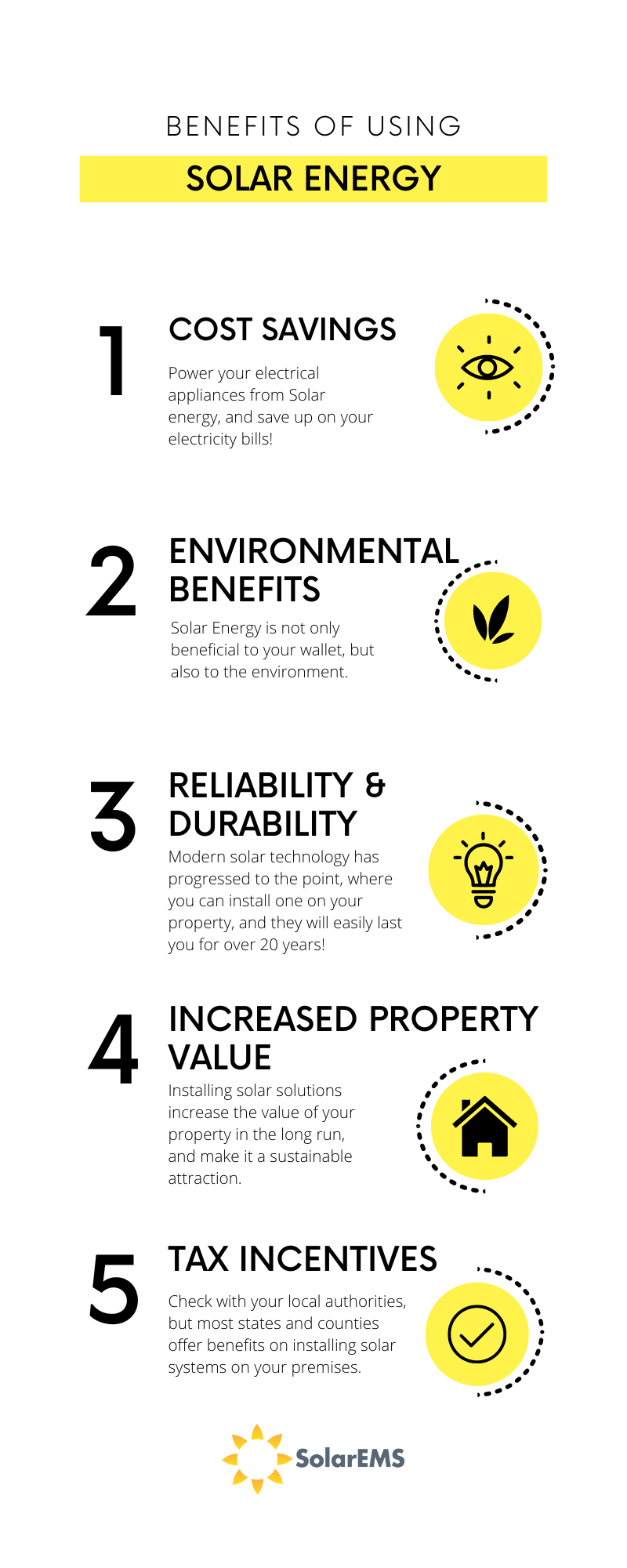Are you considering investing in solar panels for your home or business in Texas? It’s a big decision and one that requires careful consideration of the pros and cons.
Texas is one of the best states for solar energy due to its abundant sunshine and relatively low electricity costs. Solar energy is very sustainable and environmentally friendly. It doesn’t emit greenhouse gasses and pollutes the environment. Also, solar energy is becoming increasingly popular across the United States, but it may not be right for everyone. But are solar panels worth it in Texas? Let’s take a look at some of the advantages and disadvantages of installing solar panels in Texas.
What is Solar Energy?
Solar energy is a renewable and sustainable form of energy that comes directly from the sun. It has been used for decades to power homes, businesses, and other applications. In recent years, solar technology has advanced significantly which makes it a popular choice for those looking to reduce their carbon footprint or save money on electricity bills.
How does solar energy work?
Solar energy works by collecting sunlight with photovoltaic (PV) cells which convert this light into usable electrical current. The PV cells are installed on rooftops or ground-mounted systems where they can receive as much sunlight as possible throughout the day. Once collected, the electricity generated by these cells can then be stored in batteries or fed directly into a home’s electrical system depending on its setup.
Benefits of Using Solar Energy

- Cost Savings: By installing a solar panel system at your home can save you money on your electricity bills over time. The cost of electricity from traditional sources continues to rise, while the cost of generating power from renewable sources like solar has dropped significantly over recent years. This means that if you invest in a quality solar system now, you could save a significant amount of money down the line. According to the power wizard, using solar panels can help the average American family potentially save up to $1,413 per year.
- Environmental Benefits: One major benefit of using solar panels is that they do not produce harmful emissions like fossil fuels do when burned; thus helping preserve our environment while reducing air pollution levels. By switching over to green energy sources like PV systems, we can all do our part in reducing carbon dioxide levels and helping preserve our planet for future generations.
- Reliability & Durability: Unlike other forms of alternative energies such as wind turbines which require consistent winds in order to generate enough power, solar panels have no moving parts so there’s less chance something might break down over time; making them extremely reliable and durable even after long periods without maintenance. However, make sure to change the solar panels in a few years and clean them regularly.
- Increased Property Value: Installing a PV system also has potential financial gains beyond just saving money each month on utilities; studies have shown that homes equipped with these systems tend to sell faster than those without them because they often attract buyers who value sustainability initiatives more highly than others may not be aware exist at all! Furthermore, having an efficient source of power already installed makes any property more attractive since prospective buyers won’t need to worry about additional expenses associated with setting up their own alternative energy.
- Tax Incentives: There are several tax incentives available to those who install solar systems in Texas, including federal tax credits and state rebates. These incentives can help offset some of the upfront costs associated with installation so that you can save more.
The Disadvantages of Solar Panels in Texas
Solar panels are becoming increasingly popular as a way to reduce energy costs and help the environment. However, there are some disadvantages associated with using solar panels in Texas that should be considered before making an investment.
- Cost: One major disadvantage of installing solar panels in Texas is cost. The initial installation cost can be quite high depending on the size and type of system being installed. Depending on how large your system needs to be (and what type/brand components you choose), these costs can add up quickly so make sure to factor them.
- Maintenance Requirements: Solar panel systems require regular maintenance throughout their lifetime which adds additional costs to their overall price tag as well as takes up valuable time if done by yourself instead of hiring professionals. Additionally, they need direct sunlight exposure during peak hours each day which may not always be possible depending on where they are located geographically.
- Weather Conditions: A major issue with using solar power in Texas is its unpredictable weather conditions which can affect how much electricity your system produces each day. For example, cloudy days mean less sunlight reaching your panel’s photovoltaic cells resulting in lower levels of electricity generation than expected from sunny days alone. This means that even when you have invested money into purchasing a large number of solar panels, their output could still be affected by bad weather conditions leading to reduced savings on utility bills compared to what was initially anticipated upon purchase/installation.
- Availability Of Rebates & Tax Credits: In Texas, if you’re considering getting a solar power system for your home, there’s a potential downside to keep in mind. The state might not offer rebates or tax credits to help you with the upfront costs of installation. These incentives can make it more financially appealing to switch to solar energy instead of relying on traditional energy sources like coal-fired power plants.
Who should use solar energy?
If you’re looking to reduce your carbon footprint, or simply want to save money on your electricity bills, then solar energy is a great option for you. Here’s why:
1. Solar energy is renewable and sustainable.
Unlike fossil fuels, solar energy is generated from the sun which means it doesn’t create any pollution. As long as the sun continues to shine, solar power will continue to provide clean and affordable electricity.
2. Solar energy is affordable.
Solar panels are becoming more affordable all the time, making it a viable option for everyone. Hence, going solar can save you a lot of money in the long run.
3. Solar energy is reliable.
Unlike other forms of electricity, solar panels are designed to produce power regardless of weather conditions.
4. Solar energy doesn’t cause global warming.
Solar energy is considered “green” because it doesn’t emit greenhouse gasses like carbon dioxide. Instead, it releases electrons and photons which heat up the planet, but that’s a minor downside when compared to other forms of electricity.
The Best Places to Install Solar Panels in Texas
Texas is among the best places for solar energy production due to its abundant sunshine and wide open spaces. I
1) West Texas: The vast expanses of desert land in West Texas make it an ideal place for installing large-scale solar projects. This region receives more than 300 days of sunlight each year, making it perfect for harvesting energy from the sun’s rays. Additionally, there are plenty of empty areas that can be used for setting up photovoltaic systems without disturbing existing wildlife or habitats.
2) South Central Coast: With its long coastline and sunny beaches, the south central coast offers many opportunities for harnessing solar power on both residential and commercial properties alike. Not only does this area receive ample amounts of direct sunlight throughout the year but also has access to wind turbines which helps supplement any gaps in power supply during cloudy days or at night time when no sunlight is available.
3) Hill Country: Located just northeast of Austin city limits lies hill country – home to rolling hills and lush green pastures with plenty of potential sites suitable for installing ground-mounted PV systems or rooftop arrays depending on individual requirements. As most parts here have good exposure to the southern sky, they tend to get the maximum amount of daylight hours compared to other regions within the state thus providing higher efficiency rates over longer periods of time.
Conclusion:
In conclusion, utilizing renewable resources such as solar energy offers numerous benefits both financially and environmentally compared to traditional methods. With advancements in technology continuing every day, more people are turning towards this form of green living in hopes that we may eventually move away completely from non-renewable sources altogether.
FAQs
How Much Does It Cost to Go Solar in Texas?
The cost of installing solar panels varies depending on your location, but it can be pretty affordable. You can expect to pay between $11,432 to $15,468 for a complete solar system. Property owners in Texas can get benefits for installing solar panels on their property which help them to save money on their taxes and can be an incentive for many to switch to a more sustainable energy source.
Are Solar Panels Worth It in Texas?
There are a few things to consider before making a decision about whether or not solar panels are worth it in Texas. The first thing to consider is your energy needs. If you only use a small amount of energy each month, then solar panels may not be the best option for you. Secondly, check whether the area you live in receives enough sunlight or not and check the cost associated with installing solar panels.
What are Houston Texas solar incentives?
Houston, Texas has abundant sunshine and this place offers numerous incentives to reduce the cost of solar energy systems. According to MAYOR’S OFFICE PRESS RELEASE, the City of Houston partnered with Solar United Neighbors to offer residents a convenient way to install rooftop solar panels at a discounted price through the Texas Solar Switch Houston program.
This article provides the information on advantages and disadvantages of solar panels so that you can make informed decisions. This article will also help you to decide whether you should opt for solar energy or not.
Meet the Authors
Dax Linwood is a knowledgeable and experienced writer in the field of renewable energy, with a core expertise in solar energy. With a passion for sustainability and a commitment to advancing the adoption of clean energy, Dax's writing is both informative and engaging. He has worked on numerous solar energy projects, including solar panel installation and maintenance, and has a deep understanding of the technology and its benefits. Dax's expertise and dedication to the renewable energy industry make him a valuable resource for those looking to learn more about solar energy and its impact on the environment.

